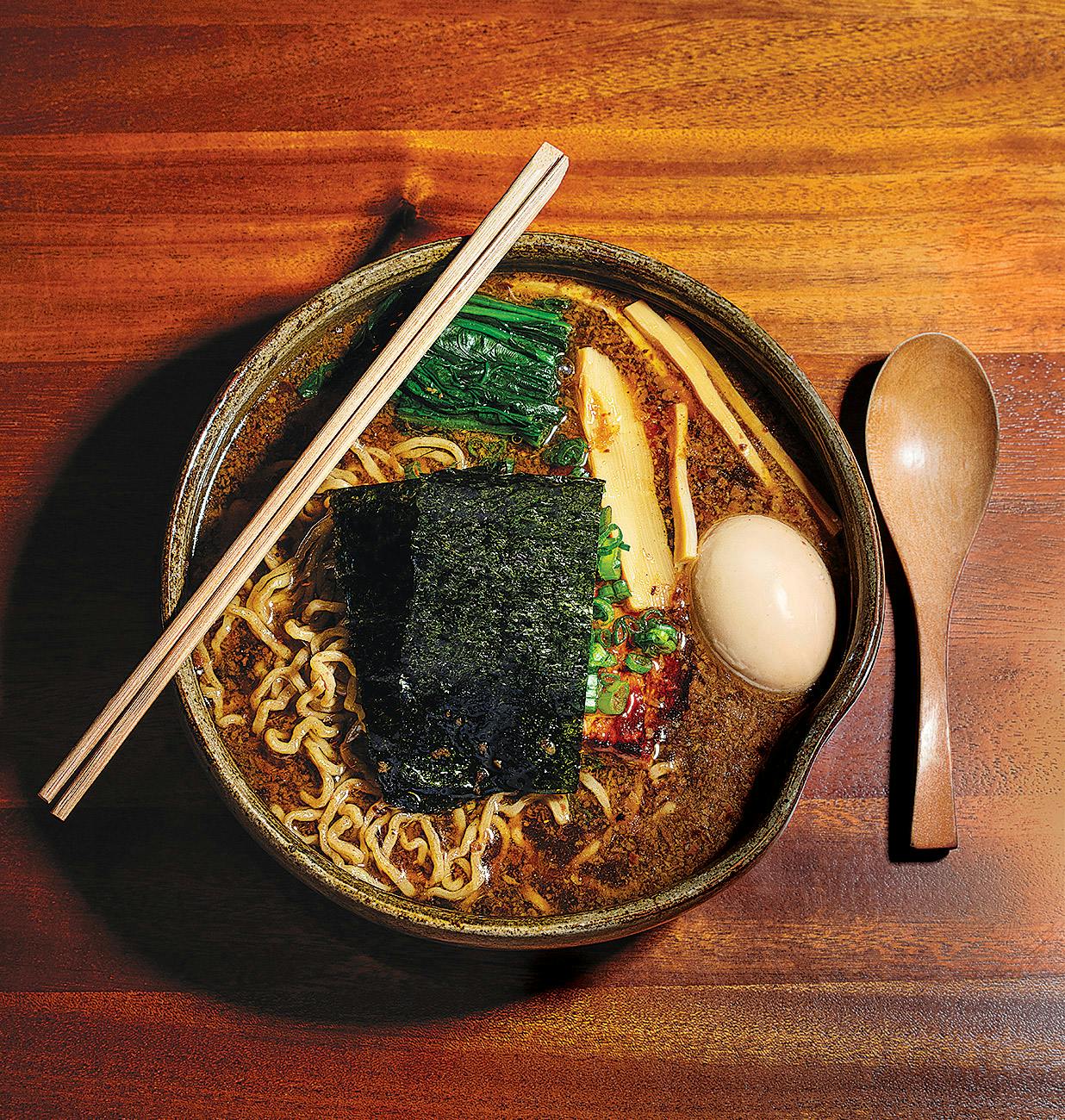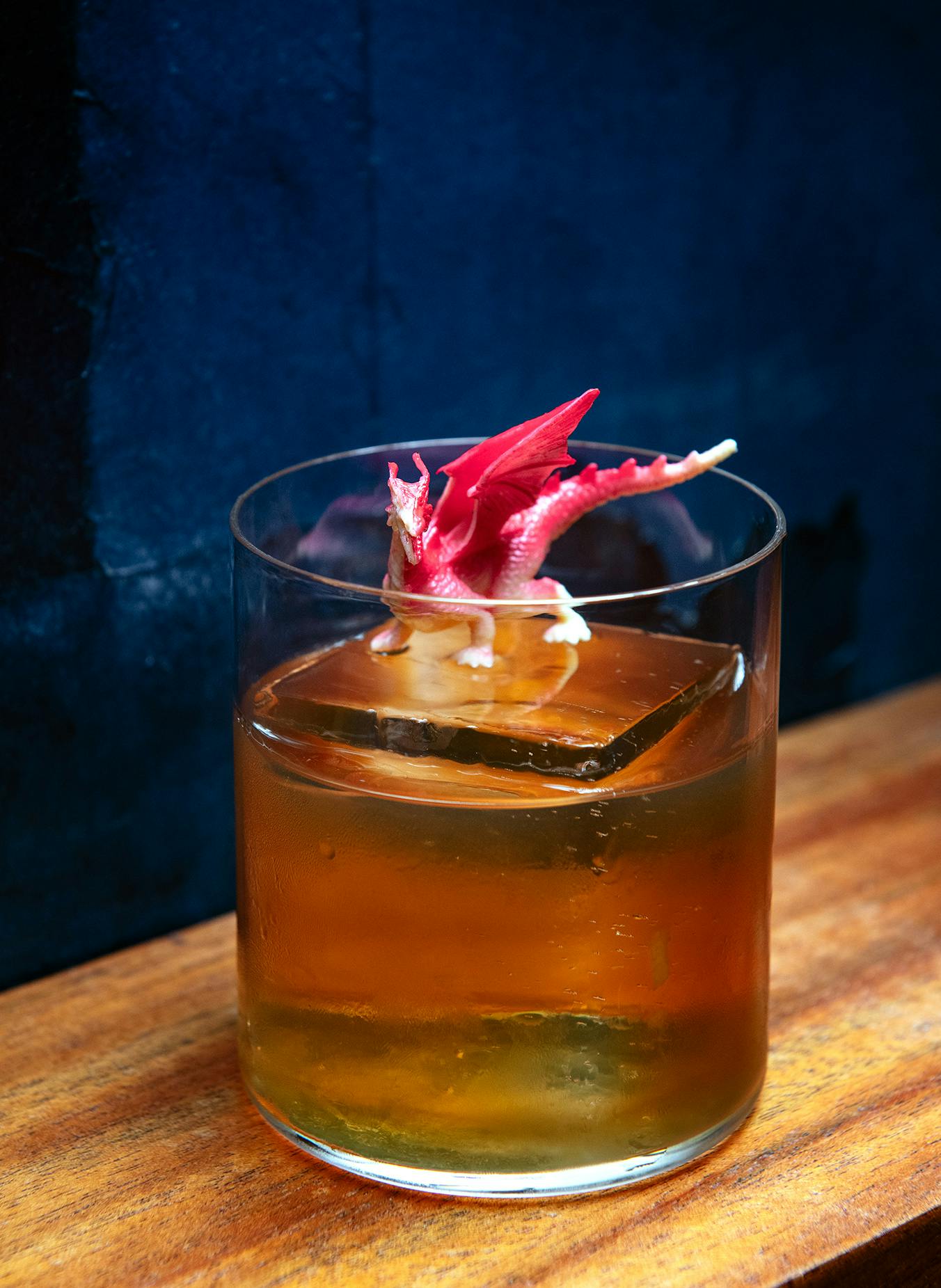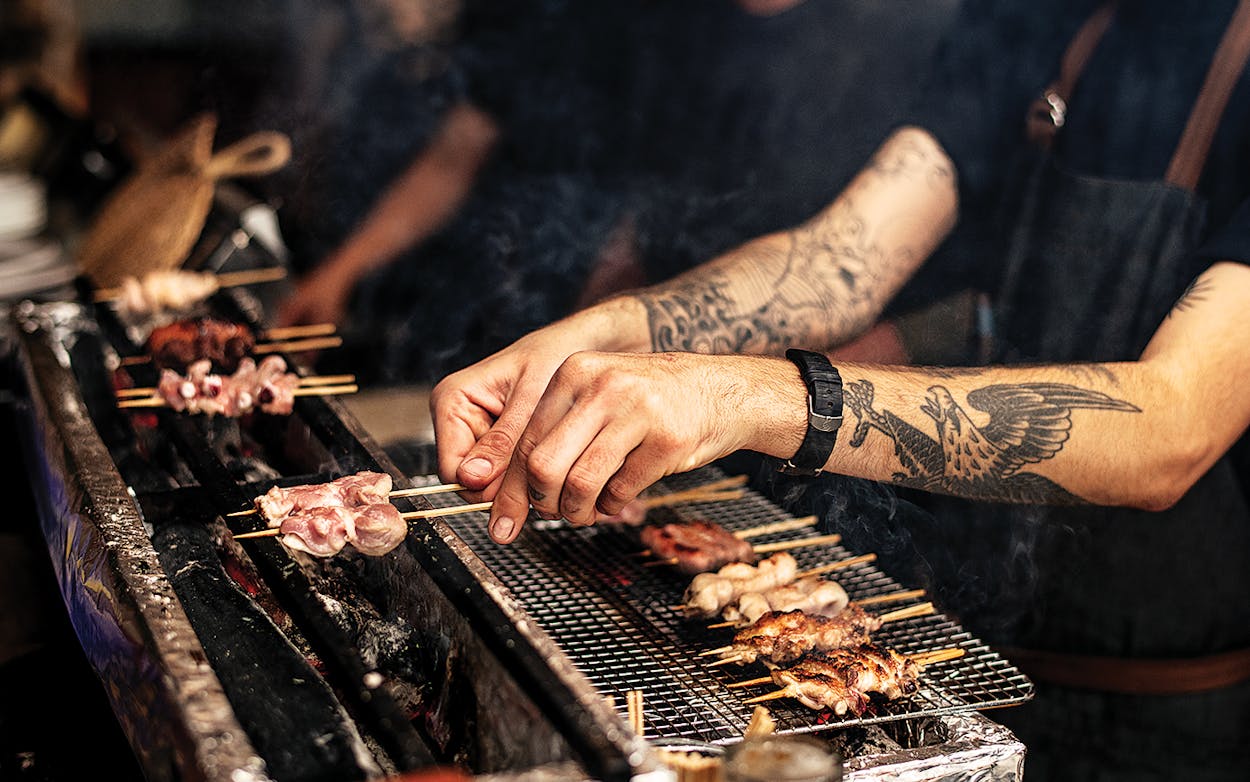There are two kinds of people in the world: those who can take it or leave it and those who can’t leave it alone. The latter, also known as perfectionists, are a proud tribe who can count among their members Dallas chef Justin Holt. As friends and admirers of the 36-year-old can attest, his quest for perfection borders on obsession, maybe even possession, particularly regarding the two Japanese dishes that have haunted his dreams for the better part of a decade: ramen and yakitori. The man’s a maniac when it comes to crafting ramen’s springy wheat noodles. He’s infatuated with its long-simmered broths and porky chashu slices. He’s fixated on its ajitama, those lush soy-and-mirin-marinated soft-boiled eggs. At the same time, he’s also a tireless student of yakitori, skewered grilled chicken, carving tender birds into succulent bits and cooking them over hellishly hot Japanese binchotan coals.
Wanting to do right by the cuisine that so captivated him, Holt spent some five years honing his skills through a series of wildly successful ramen pop-ups. And in September, he realized a long-held goal: he opened his homage to the izakaya, or Japanese gastropub, a 27-seat nook named Salaryman, located in Dallas’s Oak Cliff neighborhood. That the spot shares an address with charcuterie specialist Macellaio may seem odd, but it’s not random; Macellaio’s owners, David and Jennifer Uygur, are Holt’s business partners, and for six years, the versatile, classically trained chef was sous chef at Lucia, their highly regarded trattoria.

I was pondering Holt’s well-known passions the evening that three friends and I queued up to claim one of the few tables at Salaryman (there are three, plus a community table and a bar). Successfully seated, we ordered drinks, including a bracing lemongrass mojito adorned with a perfect green shiso leaf and a citrusy yuzu cocktail made with shochu, Japan’s popular distilled spirit. Suitably appeased, we looked around at the quasi-industrial but cozy setting and discussed the restaurant’s name, a term for the legendarily loyal, overworked, sleep-deprived, sake-swigging white-collar workers of Japan, who often grab a quick bite at an izakaya before catching the last train home.
Turning to the brief menu, my friends and I took one glance and immediately ordered yakitori, not only because the skewers of chicken were so attractively priced but because we figured they would come out quickly (they did). Of the nineteen beak-to-tail choices, we tried about half, all sizzling, all with crispy charred edges fragrant from the grill. A must: negima, pieces of scallion and super-juicy thigh meat dipped in soy and mirin. Equally mandatory: tsukune, moist, near-fluffy meatballs. The biggest surprise: the oyster, a magnificently tender, mollusk-shaped nubbin of back meat. Best of show: pale pink livers so fragile and flavorful they rivaled foie gras. The only two letdowns: slightly overcooked hearts and stringy ventricles. When we tired of grilled fowl, we switched to other nibbles: shiitake mushrooms and a darling array of gently cooked quail eggs dipped in a complex tare, or seasoning sauce. A side of sunomono, pickled cucumber with sesame seeds, balanced the richness.
Then we turned to the other half of Salaryman’s universe: ramen, or as I came to think of Holt’s version, the chicken noodle soup of the gods.
There are three variations on the menu, and each starts with all-natural birds sourced from Gerber’s Amish Farm, in Ohio. The most basic is the shio, which means “salt” and refers to the dashi base plus the sake, mirin, and sea salt that give it substance. This is a ramen for purists. The broth is light and clear, yet beautifully rounded and full of flavor. Its inclusions are chopped scallions, fresh Taiwanese spinach leaves, and an exquisitely poached chicken breast. The superlative noodles, bouncy and curly, are made in-house using toasted hard red spring wheat from Barton Springs Mill, in Dripping Springs. Salaryman is the rare ramen place that makes its own noodles; most ramen houses buy them from a national supplier.

The second version, shoyu, starts with the same broth but amps it up with the house soy sauce. Additions include the chicken, plus a slice of pork belly, a small sheet of nori for crunch, menma (punchy fermented bamboo shoots), an ajitama egg, and, of course, a ladleful of those unruly noodles.
For those who crave a heavier ramen style, there’s a third choice: sultry, emulsified paitan, or “white soup.” Cooked for eighteen hours with, among other things, collagen-rich chicken feet, the broth is finished with a garlic-and-butter mayu, cooked to an ebony hue. Add-ins are similar to those in the shoyu, plus takana (pickled mustard greens) with ground sesame seeds. Holt uses straight noodles here, as is ramen custom for thicker broths.
By the end of the meal, we were all slipping into a collective ramen coma, so I didn’t mind that there was only one dessert: a soft serve–type frozen treat made with real cream, Mexican vanilla, and different Valrhona chocolate sauces. It seemed like just the thing a tired worker might wolf down before running to make the last subway of the night.
Salaryman
287 N. Bishop Ave, Dallas
214-364-8902
D Tue–Sat.
$$$
Opened September 11, 2019
This article originally appeared in the January 2020 issue of Texas Monthly with the headline “It All Works Together at Salaryman.” Subscribe today.
- More About:
- Pat’s Pick









